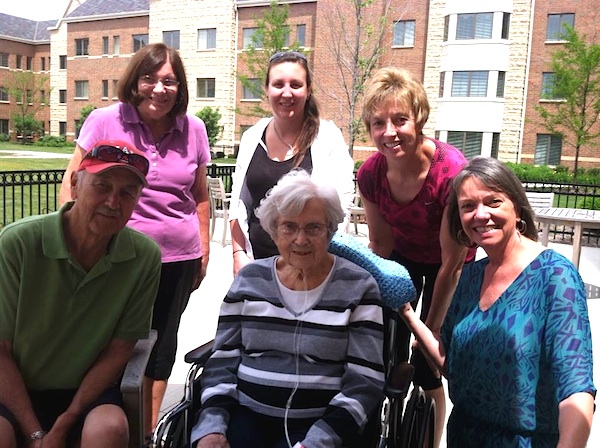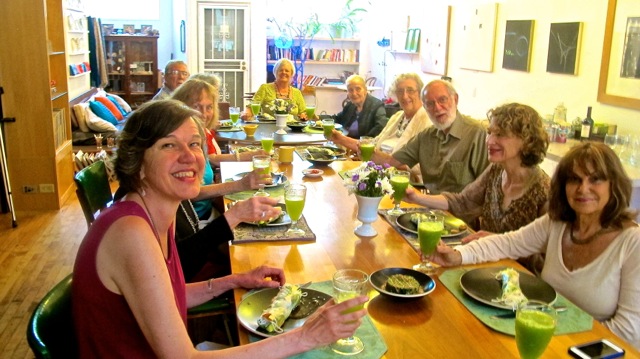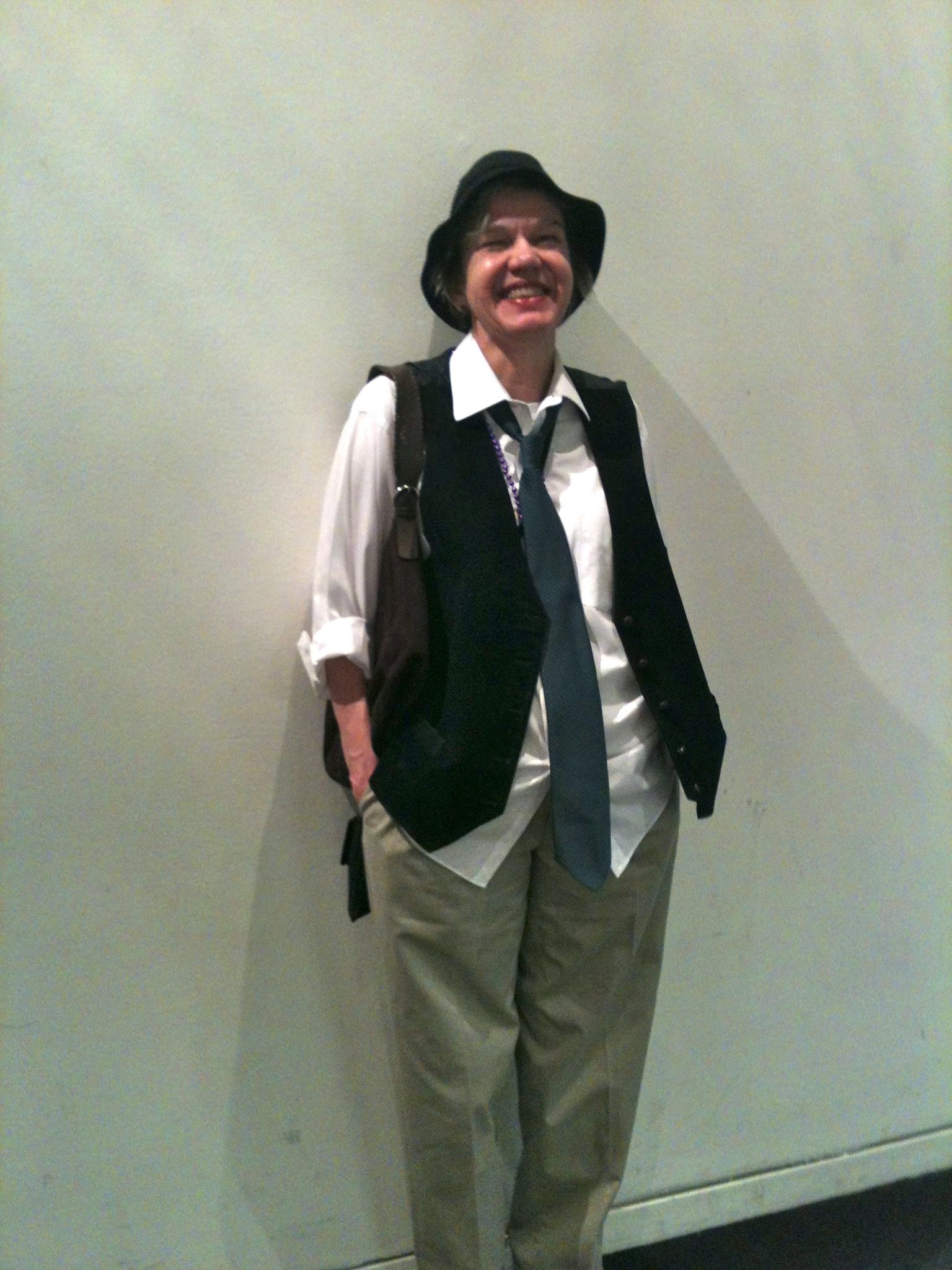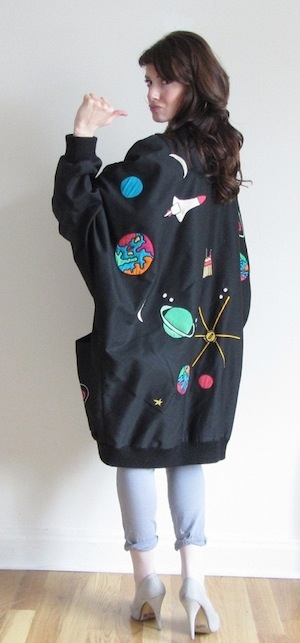Mondays with Mike: No mother-in-law jokes from me
June 9, 2014 • 13 Comments • Posted in Flo, guest blog, Mike Knezovich, Mondays with Mike, UncategorizedBeth writes often about her mom, Flo — most recently this past mother’s day.
Flo spent that day at a rehabilitation facility, where she has been getting geared up to move into her new assisted living apartment. Flo has yet to make it into her new digs — but she’s working on it.
She’s had a series of setbacks, and at 98 years old, well, every setback gets us all — the legion of Finke children, grandchildren, great grandchildren, great-great grandchildren, friends and in-laws like me —- worried, concerned, anxious, teary-eyed. She’s bounced back so many times that for me, considering the possibility that she won’t again feels a little like what I imagine a taser to feel. Stunned dumb.
I lost my own mother 23 years ago. I’ve known Flo now for more than 30. My mom had absolutely nothing in common with Flo. At least not on the surface. As I think about it though, they both had known some serious hardship, and were forced to fairly claw for survival at points in their lives. Flo lost her husband when she was 45, had six kids at home, had no job and only part of a high school education. My mom’s first husband was in a horrible oil refinery fire in Bakersfield, Calif., just before Christmas in 1952. He survived a couple agonizing weeks, and then died — leaving my mom Esther, just turning 30 about then, with a 6-month-old daughter, thousands of miles from her own family.
My mom, well, it’d take a lot more than a blog to cover that little fireplug. Whatever our difficulties were though, I always knew I could count on Esther if my back was against the wall. I think it’s because she’d been there.
It’s been that way with Flo and me, too. Through all of the tribulations Beth and I faced, the question people immediately asked me most often was, quite reasonably, “How’s Beth?” “How’s Gus?” For as long as I can remember, though, Flo always asked, every time she saw me, “How are you, Mike?” She worried out loud that I looked tired (I did). I drove too much (I did).
Of course she was worried about her daughter, too. But I got the feeling that, looking at me, she saw someone in over his head — exactly as she had been years ago — and that she knew what that meant and wanted me to know: She was in my corner.
Right now I, and what I would estimate to be around a 1,000 members of Finke nation, are in hers.
Therapists of various stripes are on the case, and Flo’s working hard. But it’s not all work and no play. She lights up when visitors enter. She’s enjoyed the fantastic weather of the past few days. She tells everyone how good they look and how much she loves them. And she just got her nails done. When asked how long it took them to do her nails, she said, “98 years.” It was her first mani.
See you in your new place, Flo.




